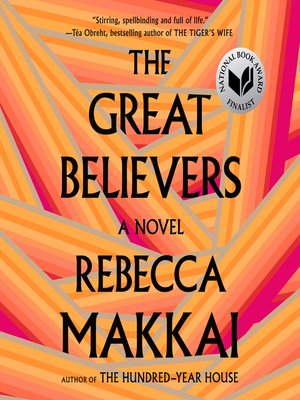

This is a book that I found terribly hard to read at times. In turn, she is able to fully show up for the generations that follow her: her daughter and her daughter’s daughter. It is not until one of Fiona’s ghosts (re)appears in 2015 Paris that she is able to lay to rest some of her grief and guilt and loss. Both women live with the ghosts of their lost loves, and those ghosts impact the lives of their family members who come afterwards. Nora, Fiona’s great aunt, is a survivor of the Lost Generation of WWI Paris, just as Fiona survives the AIDS epidemic that annihilates her brother and many of her closest friends in the mid-1980s/early 1990s.

The two stories seem wildly divergent (except for some overlap in characters), but as Makkai knits up her novel, they begin to inform one another more and more, both in terms of characters and thematically.

The other takes Fiona (who was a very young woman affiliated with Yale’s world in the mid-‘80s) to Paris in search of her missing adult daughter, Claire, in the year 2015. One storyline begins with Yale Tishman in Boystown, Chicago circa the mid-1980s as AIDS lays waste to the gay community. Rebecca Makkai’s 2018 novel, The Great Believers, explores themes of trauma, lost generations, parenting, death, emotional inheritance, and the repetition of generational struggles as its weaves two stories throughout.


 0 kommentar(er)
0 kommentar(er)
